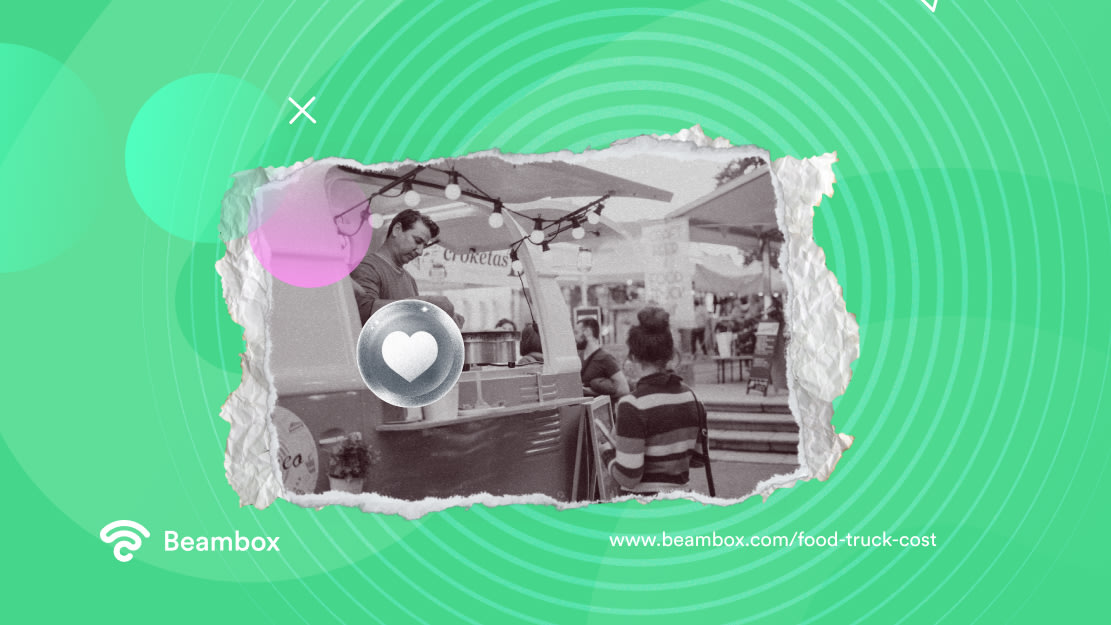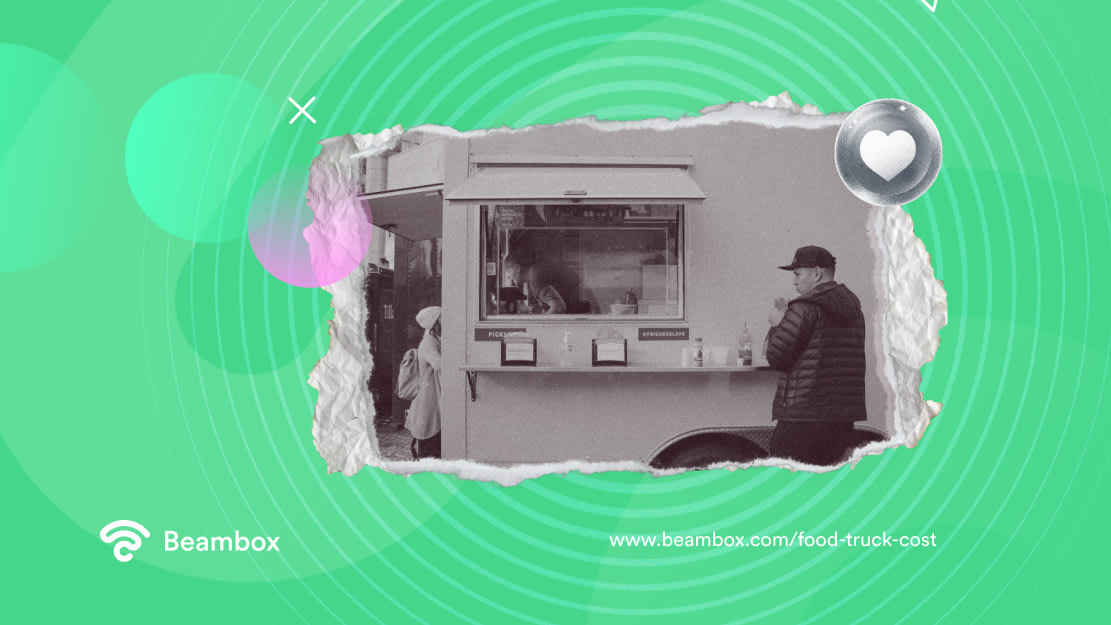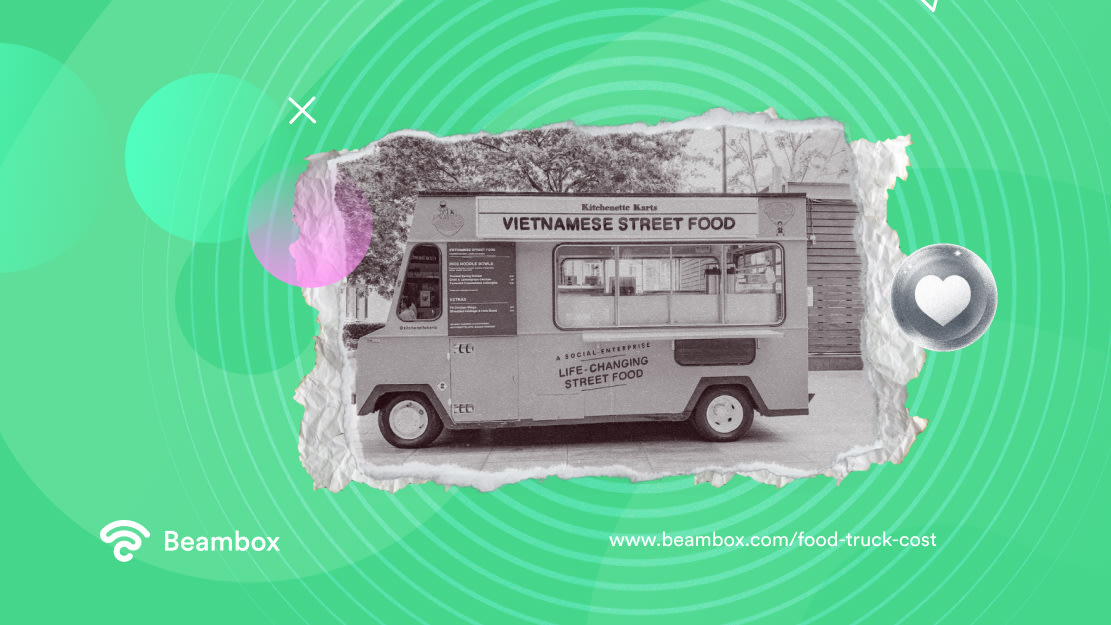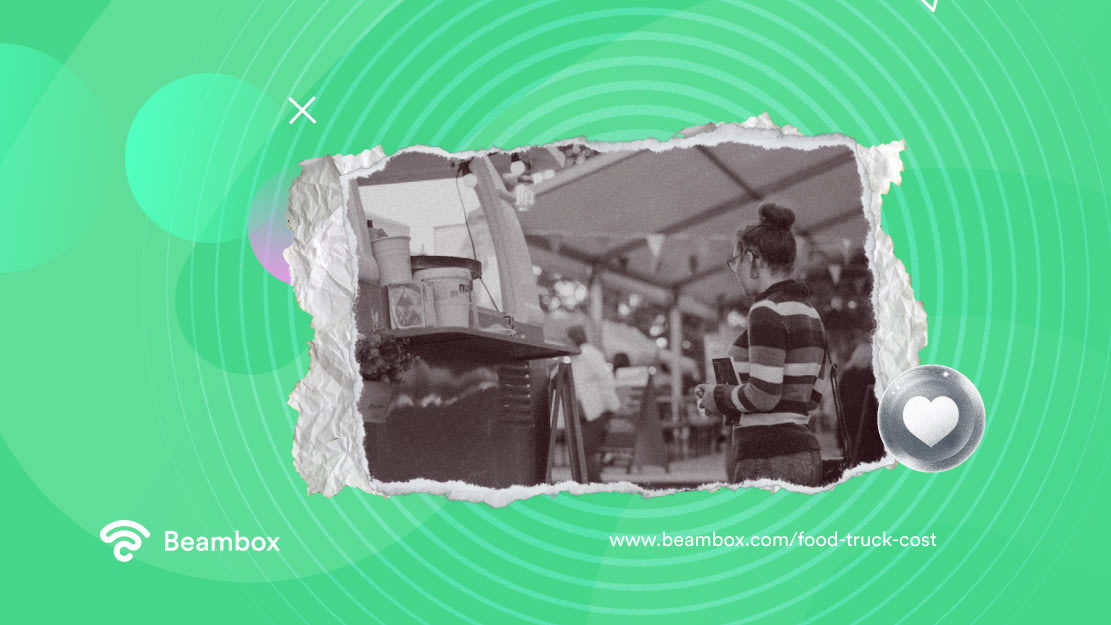Food Truck Cost: A Brutally Honest Expense Rundown
A food truck business is a hugely popular business type. In fact, a recent US study found nearly 21% of food trucks had a turnover of more than $200,000. That is a lot of turnover for a hospitality business that doesn’t require bricks and mortar. You can roam the streets, seeking a prime location and avoiding the nightmare of the stationary restaurant industry. It seems like heaven and a total breeze to tackle when you think of it like this. However, food truck businesses still fail, and one of the most avoidable reasons is a lack of startup knowledge. So, what exactly is the food truck cost?
In this guide, we’ll give you a brutally honest rundown of the expenses of starting a food truck business. There are loads to consider, from regulation requirements to food prep, food truck advertising, and food truck leases. It’s a lot. But with some straight-talking honesty, you’ll have no issues becoming part of the successful 21% making big money. Here’s what you need to know.

The Basic Food Truck Cost: An Overview of Food Truck Startup Costs
There are loads of final details when it comes to food truck costs. But this is the simplest overview of food truck startup costs just to give you a quick idea. You can use these figures as introductory guidelines, and we can break down a detailed food truck cost later.
As a general figure, expect to spend over $100,000 on starting a food truck business.
You may not need to buy a building. However, purchasing a food truck alone can cost up to (and sometimes over) $70,000. Don’t let this fool you into thinking food trucks are a cheap option. Food trucks are likely more affordable than setting up a restaurant, but by no means cheap. You’ll need everything from a credit card processing machine to the truck itself. These are the costs you need to factor into a startup budget:
- Food truck: $60,000-70,000
- Food equipment: $10,000
- Licenses: $15,000
- Initial ingredients: $2,000
- Website: $1,000
- Marketing: $500
- Staffing: $1,500
As you can see, there’s lots to factor in. Of course, you may rent a food truck instead - this is similar to renting a restaurant venue. A food truck lease can cost three to four figures a month, but it knocks your initial investment. Some people need to get their foot in the door quickly. Renting is brilliant if you want to take out the $60,000 to $70,000 chunk.
$100,000 is a good ballpark figure to have in your head. If you can collect this amount, you can purchase a food truck to set up your business. You can fund the entire thing yourself or apply for a business loan. If you need to spend less than this, a rental food truck is better for you. We’ll cover that more later.

Upfront Food Truck Cost: What Is the Average Cost of a Food Truck
So, you know the budget for a food truck cost; what about the average cost of a food truck itself? Generally, you can buy a food truck for around $60,000 to $70,000. This varies depending on the vehicle’s newness, the owner’s readiness to sell, and the area you are buying. But if you squirrel away $60,000 plus, you can be sure you’ll snag a great purchase.
Of course, buying a van at this price doesn’t mean it is the finished product. A significant aspect of food truck design is that it reflects the food concept of your business. So if you buy a Mexican food truck but sell burgers, it will obviously require some redecorating. The way to fix this is with a wrap. Some businesses even have their menu displayed on the exterior of their truck, depending on your preferred menu types. Brilliant, right? Yes, but food truck wraps cost between $2,500 and $5,000 - a considerable chunk to add to your budget. When purchasing a food truck, you must understand you’ll likely have to make this adjustment.
Similarly, you’ll likely have to revamp the interior. Inside you’ll need a fully functional kitchen that will impress food hygiene boards and get five-star ratings. And you’ll need tools for things like credit card processing and mobile POS. You can easily add $5,000 to $10,000 to your budget to purchase interior upgrades and equipment.
The average cost of a food truck is around $60,000 to $70,000. However, you should allow an extra budget of at least $8,000 to get it into action.
Starting a Food Truck Business Without Buying: Food Truck Rental Cost
Let’s reverse to where we mentioned starting a food truck business without purchasing a truck. Renting a food truck is a great idea to lower your initial food truck cost. You’ll avoid that nasty $60,000 to $70,000 upfront cost, instead committing to a lower-risk business model. Here’s the average food truck rental cost and how to run a business while renting, not buying a food trailer.
$400 per month is a great average price for renting a food truck.
$400 will eventually total up to a significant total, of course. $400 per month is almost $5,000 a year. And you’ll still be responsible for ensuring your rental food trailer has a design that matches your food concept. Plus, you’ll need to purchase insurance. There are lots of things to consider. However, renting a food truck is much easier, even if you pay a few months in advance. Plus, $5,000 a year is nothing compared to what you’d spend on building rent, especially in the best locations.
We’d suggest setting aside at least $10,000 if you decide to rent a food truck. This will allow you to redecorate (with permission) and fill it out with the best equipment upfront. You’ll also have enough for decent insurance and be able to secure a significant deposit. Saving $10,000 is much more feasible, and you’ll have a food truck business up and running in no time.
Remember that you’ll still have upfront costs aside from the rent on a rental food trailer. But you don’t need anywhere near the capital. You need to purchase one upfront.

Factoring in Necessary Precautions: Food Truck Insurance Cost
Insurance is an essential part of your food truck cost, a necessary precaution. Things can go wrong no matter where you run your food truck business. And, by nature, trucks are liable to breakdowns and damage. Whether you suffer a robbery, flat tire, crash, or engine explosion, it doesn’t matter. So long as you have insurance, you and your business are safe. It’s important to know food truck insurance cost is something you need to consider whether you buy or rent.
Food truck insurance gives you security and guarantees the safety of your business. Things go wrong in the business world, and that’s life. But having insurance massively limits the impact these adverse events can have on you. So, how much should you set aside?
Generally, allow for around $5,000 yearly on insurance for your food truck business. This should cover your food truck, equipment, and inventory. It may cover certain things more business and staffing related, like sick days and staff incidents. You may have to take out additional business insurance if you need to.
If you plan to set up a food truck business, $5,000 yearly shouldn’t break the bank. It breaks down to around $420 a month. However, you will find slightly cheaper options, so shop around if you are willing to sacrifice certain aspects of coverage. You can always find a slightly cheaper deal, and it pays to be savvy if budgets are tight.

Factoring in Official Requirements: Food Truck Permit Cost
When calculating your food truck cost, a food truck permit cost might seem insignificant. If you aren’t familiar with permits, you’re likely budgeting a couple hundred dollars, $1,000 at max. Depending on your area, this estimate couldn’t be more off. Forking out for permits can cost you up to $15,000. These are the standard permits that most US states require:
- Seller’s Permit
- Fire Certificate
- Commissary Letter of Agreement
- Parking Permit
- Standard Operating Procedures Document
- Special Event Permit
- Business License
- Vehicle Registration
- Public Health Permit
- Mobile Food Facility Permit
- Certificate of Liability Insurance
Of course, not all of these permits are definitely necessary. For instance, the Special Event Permit is only necessary for those wanting to attend special events like festivals. If you aren’t going to be serving food at events, then you can skip this one. Similarly, you can skip the Commissary Letter of Agreement if your state doesn’t require food prep at a commissary kitchen.
Get your research done about permit requirements, and you’ll have a much clearer idea of the budget. Fingers crossed, your budget is on the lower side of $15,000, but it pays to be in the know. Nobody wants a nasty surprise bill.
Many people start a food truck business blindly with no forethought about the regulation side of things. You need to check your specific state requirements or country’s regulations if you are outside of the US. It might seem like unnecessary hassle, but officials can ask you to show evidence of these permits at any time. It is by no means worth the fine that you can get for not holding valid permits and licenses. Play it safe, and you’ll be much better off. Besides, it gives customers a sense of your authority, which builds customer loyalty and trust.
5 Ways To Reduce Food Truck Cost
Looking for ways to reduce food truck costs is a smart way to approach starting a food truck business. The more you can reduce the price, the quicker you can pay off any business loans and rake in profit. It’s a fantastic idea to reduce your initial costs as much as possible. And if you’re looking for ideas, we’ve got five effective ways to reduce your startup food truck cost.
- Rent, don’t buy. Renting a food trailer rather than buying one is the most obvious way of substantially decreasing costs. It doesn’t take a genius to know that saving yourself $60,000 will help you start your business quicker. And while you will still have long-term costs rather than a truck investment, it is worth the price drop.
- Choose your state carefully if operating in the US. Different states in the US have different permit and regulation requirements. This means choosing a food truck business is more expensive in certain states – choose carefully. Choosing your state with permit requirements and prices in mind is an intelligent way to reduce overall costs. Things like fuel prices vary too, especially if you have a diesel engine.
- Find a business partner. When you struggle alone, split the bill. Finding a business partner can relieve you of the financial pressures of starting a food truck business alone. Just make sure to get contracts for everything.
- Negotiate on things like parking costs. If you rent a private parking spot or commissary space, negotiate. Could you offer the owner some marketing or service of value? Free lunches for their staff? Or discounts for their business?
- Invest in low-cost marketing. Lastly, marketing can be inexpensive. Investing in low-cost marketing can reduce your business costs while boosting your profit – a win, win.
How Much Do You Need To Save To Cover a Food Truck Cost?
If you can save or borrow $100,000, you can quickly start a food truck business. The average food truck cost is around $100,000 if you buy a truck. Or as little as $30,000 if you rent a food trailer instead to start your business. Decide whether you want to rent or buy, then get to work applying for business loans and saving. Starting a food truck business with the proper budget and business loan is no different from scavenging a small house deposit.
The cost of a food truck is understandably a significant sum of money – be it funded by loans or savings. But it helps to have these solid figures in your head. And if you can’t afford the cost of food truck purchases, it’s reassuring to know renting is a popular option. Plus, rent is at least tax deductible. Get your figures straight and your choices clear, and you’ll be well on your way to achieving food truck success. A food truck is a roaming hunger fixer - what more of a perfect business model could you get?
Do you want some extra help with calculating your food truck cost? At Beambox, we are always happy to assist with marketing and managing new businesses. As WiFi marketing experts and food industry lovers, we are passionate about each and every hospitality venture’s success. Beambox offers the best all-in-one WiFi marketing platform. We use effective approaches to connect, intrigue, and keep customers. Start your Beambox free trial today, and let’s get started on your food truck journey.
Get Started With Free WiFi Marketing
Beambox helps businesses like yours grow with data capture, marketing automation and reputation management.
Sign up for 30 days free


